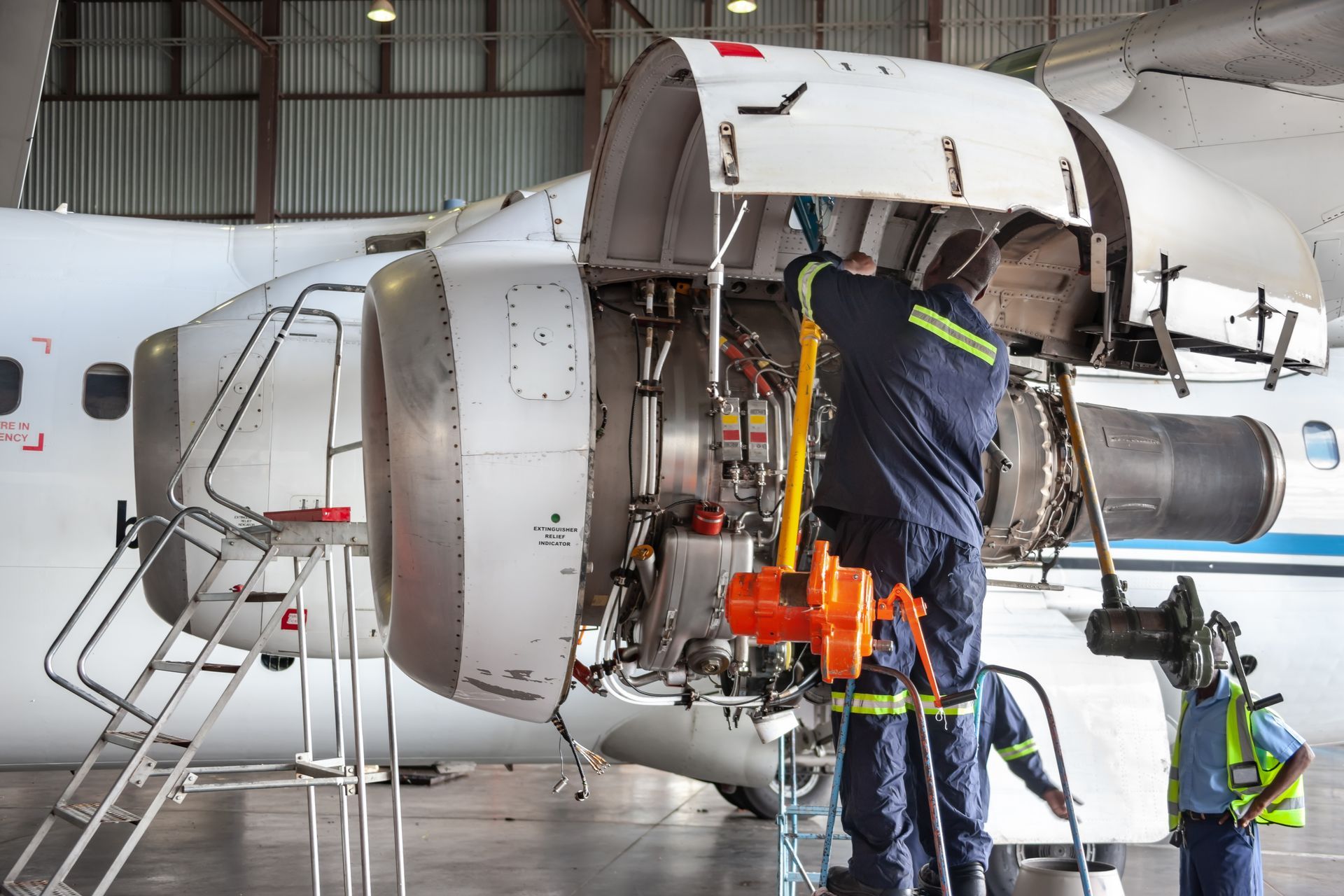Exploring Careers In Defence
With the UK’s defence spending at an all-time high, set to reach £56.9 billion in 2024/25, the defence sector is booming.
Among increasing global threats, there is a great demand for skilled professionals within the industry. Numerous investment initiatives are driving growth within this sector as the UK focuses on strengthening its defence capabilities.
Private sector partnerships, government funding, and a
growing emphasis on advanced technology make now an exciting time to explore a career in defence.
Whether you’re just starting your career or looking to make a change, the defence sector offers the chance to assist national security.
We’ll look at some of the defence career paths available below, including why the defence industry could be a good choice for you.
Understanding The Defence Sector
The defence sector is a vast industry that plays a critical role in national security, offering careers in both the armed forces and civilian roles.
The UK Government is the primary employer in this field, with opportunities available in
The British Army,
Royal Navy, and
Royal Airforce, as well as civilian positions within the
Ministry of Defence (MoD).
Each branch relies on highly skilled professionals to ensure smooth operations, from logistics and engineering to intelligence and communications.
In addition to government roles, the private sector plays a crucial part in supporting defence operations. Companies such as
Rolls-Royce Defence,
Leonardo UK, and
BAE Systems, are key contributors, supplying advanced technology, engineering support, and equipment to the military.
With the
defence sector supporting 434,000 well-paid jobs, it provides a wide range of career opportunities, from hands-on technical roles to strategic positions. This gives people the chance to contribute to national security while benefiting from long-term career stability and growth.

Are Careers In Defence Worthwhile In 2025?
With a renewed focus on strengthening UK defence, now is an exciting time to enter the industry. The UK’s new defence strategy aims to transform the sector into an engine for economic growth.
This includes strengthening domestic supply chains in critical industries, like semiconductors and steel.
Recent government investment has already led to the acquisition of a defence semiconductor factory in County Durham, reinforcing the UK’s position in this vital area.
Leading defence companies are also making significant moves to support this expansion.
BAE Systems
plans to recruit thousands of new employees while investing heavily in skills development, and
Babcock
is set to create 1,500 early-career roles, helping to nurture the next generation of UK talent.
In addition,
Helsing, Europe's largest defence AI company, is committing £350 million to the UK with plans to produce AI-enabled drones, unlocking cutting-edge career opportunities in high-tech fields.
Rolls-Royce
has also opened a new office in Glasgow, generating 120 jobs that will play a key role in supporting critical UK submarine projects.
With these significant investments driving growth, the defence industry is undergoing rapid expansion.
Whether you’re pursuing a senior technical role, graduate scheme, or apprenticeship, this is a sector rich with opportunities, making it an excellent choice for those seeking a fulfilling career.
Examples of Careers In Defence
The defence sector offers a wide array of career options, catering to both military and civilian professionals.
Military Careers
For those with a strong sense of duty and a desire to protect their country, a military career can be challenging and rewarding. The UK Armed Forces, including the British Army, Royal Air Force, and Royal Navy, provide a variety of roles across different specialisations.
With a combined full-time personnel of 148,230 across all branches, the UK military is a dynamic, high-stakes environment where expertise and dedication are crucial.
Whether your interests lie in combat, intelligence, logistics, or engineering, there are many opportunities for you to develop skills and make a meaningful impact.
Combat Roles
Serving in a combat role places you on the front line of national defence. Positions in the infantry or special forces involve direct engagement with potential threats. This requires physical endurance, mental resilience, and unwavering commitment to defending the nation.
Combat roles demand rigorous training to prepare personnel for the challenges of modern warfare, ensuring that they are ready to respond effectively in high-pressure situations.

Intelligence Roles
Defence Intelligence specialists play a critical role in gathering, analysing and interpreting information to support strategic military decisions. By assessing data from multiple sources, intelligence officers provide vital insights that influence tactical and operational planning.
This career path requires strong analytical abilities, attention to detail, and the ability to process large amounts of information to enhance national security.
Logistics Roles
Effective logistics management is essential for ensuring the smooth operation of military missions. Logistics professionals oversee the movement of personnel, equipment and supplies, so resources are available when and where they are needed.
Logistics roles in the
British Army,
Royal Air Force, and
Royal Navy, are essential to maintain operations. These positions require strong organisational skills, adaptability and the ability to manage complex supply chains in dynamic environments.
Engineering Roles
Engineers within the military are responsible for maintaining, repairing, and upgrading crucial equipment, such as vehicles, aircraft, and weaponry. Their technical expertise ensures that military assets remain operational and mission-ready.
If you possess strong technical skills and enjoy problem-solving, an engineering role in the armed forces can offer a fulfilling career path with opportunities for continuous learning.
Civilian Defence Careers
For those interested in defence but not in active military service, numerous civilian roles contribute significantly to national security.
The UK Ministry of Defence (MoD) alone employs 62,631 civilian personnel, while private defence contractors offer a range of positions that support military operations from behind the scenes.
Cyber Security
With 93% of organisations in the CNI sector observing an increase in cyber attacks, cyber security professionals are essential for protecting critical defence infrastructure.
Cyber threats are becoming increasingly sophisticated, and cyber experts are needed to safeguard sensitive data, respond to cyber incidents, and conduct security assessments.
If you have a passion for IT security and a keen understanding of digital threats, a career in defence cyber security can be stimulating and rewarding.
Research and Development
Innovation is key to staying ahead in defence technology, and R&D (research and development) professionals drive advancements in areas such as weapons systems, communication technologies, and protective equipment.
If you have a background in engineering, science, or technology, and enjoy pushing the boundaries of innovation, this field offers exciting opportunities to contribute to national security.

Policy and Strategy
Defence policy and strategy professionals play a critical role in shaping national defence initiatives. These individuals analyse geopolitical developments and potential security risks, helping to inform decision-making at the highest levels of government and military.
If you have a strong analytical mindset and a keen interest in global affairs, this field offers an intellectually enriching career.
Procurement and Supply Chain Management
Procurement and supply chain management professionals ensure the armed forces receive essential equipment and supplies. From managing logistics to negotiating supplier contracts, these experts play a vital role in maintaining military readiness.
This career pathway suits individuals with strong negotiation skills, attention to detail, and the ability to work under pressure.
How We Can Help
If you’re considering pursuing a career in defence, partnering with a specialist recruitment agency can provide invaluable support.
With deep industry
insights, access to job opportunities, and expertise guiding candidates through the application process, a dedicated defence recruiter can help you secure your dream role.
At
Meritus, we specialise in defence industry recruitment, connecting skilled professionals with top employers in the defence sector.
Ready to take the next step? Explore our
latest defence job opportunities, or
get in touch with our team today to find out how we can help you.












